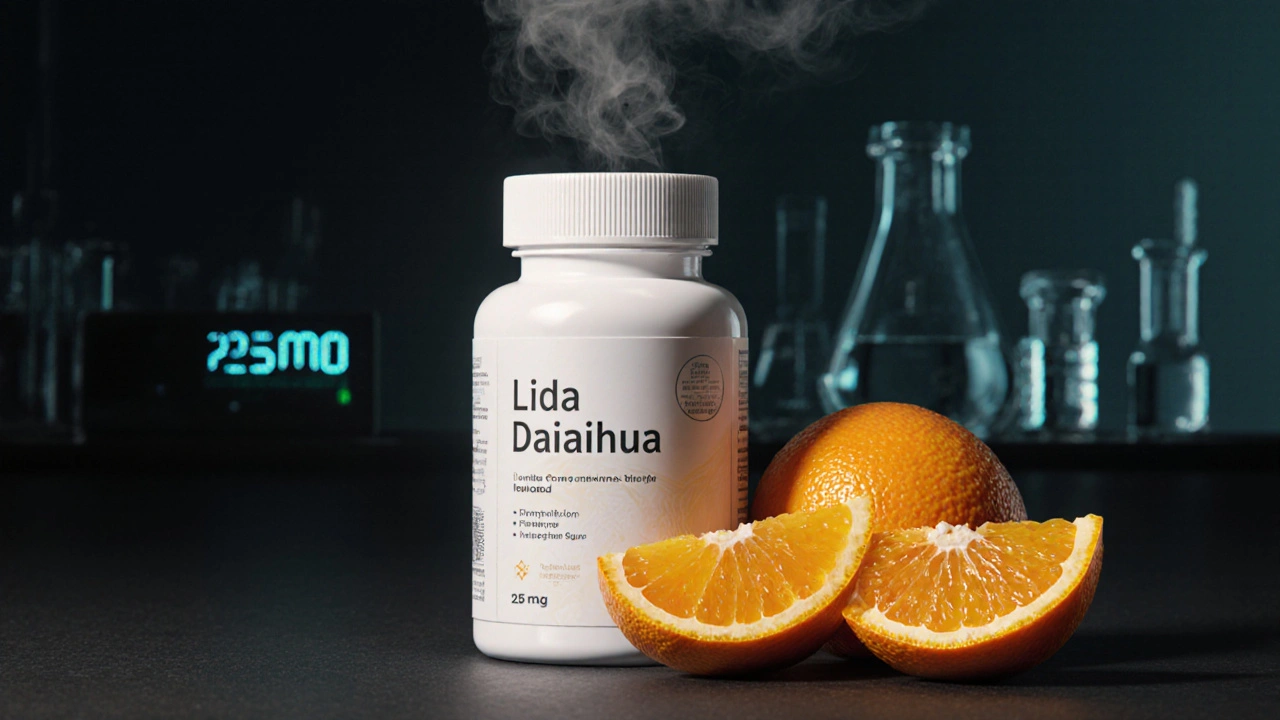Weight Loss Supplement: What to Know Before You Buy
When exploring weight loss supplement, a product designed to aid calorie burning, curb appetite, or increase fat oxidation. Also known as diet pill, it is typically paired with diet and exercise changes. Understanding how it fits with Metabolism, the body’s set of chemical reactions that turn food into usable energy is key, because most claims revolve around speeding up that process. At the same time, FDA Regulation, the U.S. agency’s rules governing safety, labeling, and marketing of dietary supplements shapes what you can expect on the label and how reliable the product might be. In short, a weight loss supplement sits at the crossroads of biology, consumer choice, and law.
Core ingredients and how they claim to work
Most products fall into a few ingredient families: caffeine or other stimulants, green‑tea extract, garcinia cambogia, conjugated linoleic acid (CLA), and various fiber blends. Stimulants act on the nervous system to raise heart rate and boost calorie burn – a direct link to metabolism acceleration. Green‑tea extract brings catechins that may increase fat oxidation during moderate activity. Garcinia cambogia supplies hydroxycitric acid, which some studies suggest may curb appetite by influencing serotonin. CLA is marketed as a way to shift body composition, while fiber helps you feel full longer, indirectly reducing intake. Each ingredient carries its own safety profile, dosage range, and evidence level, which is why checking the label against reputable research is essential.
When a supplement combines several of these compounds, the product claims to offer a “multifaceted” approach: stimulant‑driven energy, appetite control, and metabolic support all in one pill. The reality is that the effect of each component often adds up only modestly, and the body’s natural feedback mechanisms can blunt exaggerated claims. That’s why many experts recommend starting with the lowest effective dose, monitoring how you feel, and pairing the supplement with a balanced diet and regular movement.
Safety considerations extend beyond the ingredient list. Some users experience jitteriness, increased blood pressure, or digestive upset, especially with high‑dose stimulants. People with heart conditions, thyroid disorders, or who are pregnant should avoid most stimulant‑based formulas unless a physician gives the green light. Because supplement manufacturers are not required to prove efficacy before market entry, independent third‑party testing (e.g., USP, NSF) becomes a valuable filter for quality. Look for seal certifications that indicate the product contains what the label says, without hidden contaminants.
Choosing the right product also means understanding the regulatory landscape. While the FDA does not approve dietary supplements for effectiveness, it can take action against mislabeling, false health claims, or unsafe ingredients. Manufacturers must follow Good Manufacturing Practices (GMP) and list every ingredient with its amount. If a label promises “miracle” weight loss without lifestyle changes, that’s a red flag. Checking the FDA’s “Bad Ad” database or the Office of Dietary Supplements can reveal if a brand has faced warnings.
In practice, a well‑chosen weight loss supplement can give a small edge, but it won’t replace sound nutrition or consistent exercise. Think of it as a modest boost that works best when you’ve already set a calorie target, built a workout routine, and established sleep hygiene. The combination of proper dosage, trustworthy sourcing, and realistic expectations will determine whether the supplement adds value or just adds cost.
Below you’ll find a curated collection of articles that dive deeper into specific drugs, buying guides, and health topics related to weight management and overall wellness. Each piece offers practical tips, safety checks, and clear guidance to help you navigate the crowded supplement market with confidence.

Lida Daidaihua (Synephrine) vs. Common Alternatives: Which Thermogenic Wins?
A detailed comparison of Lida daidaihua (Synephrine) with common thermogenic alternatives, covering mechanisms, safety, legality, and best‑use scenarios for weight‑loss seekers.
Categories
- Medications (71)
- Health and Medicine (62)
- Health and Wellness (37)
- Online Pharmacy Guides (16)
- Nutrition and Supplements (9)
- Parenting and Family (3)
- Environment and Conservation (2)
- healthcare (2)
- prescription savings (1)
Popular Articles



